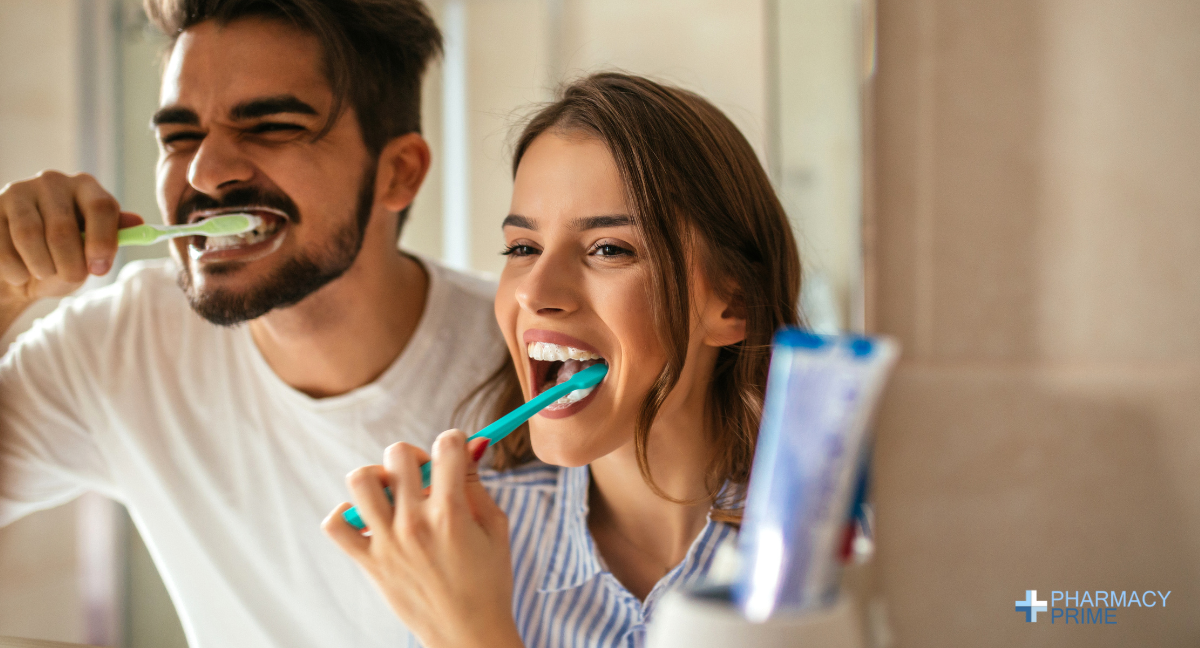Introduction
In this blog, we’ll look at what oral hygiene is, why it’s important, and different products and practices you can use to keep your oral hygiene at its best.
What is oral hygiene?
Oral hygiene is the practice of keeping your oral cavity (i.e. your mouth) clean and free of disease and other problems. This is done by regularly brushing your teeth, flossing, receiving dental checkups and cleanings, and adopting good overall oral hygiene habits.
Why is oral hygiene important?
Maintaining good oral hygiene is important because it can help to prevent diseases and problems such as gingivitis, cavities, and bad breath. It helps you to continue to speak clearly, breathe well, and to taste, chew, and swallow food, ensuring you get proper nutrition.
What is the correct way to brush your teeth, and how often should you brush?
Brushing your teeth at least twice a day with a fluoride toothpaste will help to keep your teeth and mouth healthy. Ideally, the toothpaste you use should contain at least 1,350 parts per million (ppm) fluoride.
Sometimes you may need or want to use a special toothpaste. For example, Corsodyl Gum Care Toothpaste Ultra Clean is specially formulated to help stop and prevent bleeding gums, while Oranurse Unflavoured was created for those who are sensitive to strong flavours. Those with tooth sensitivity might prefer to use a product such as Orajel Sensitivity Proshield Toothpaste, which helps to relieve and protect against tooth sensitivity.
You should brush for about two minutes total using a soft- or medium-bristle toothbrush. Keep the brush at a 45-degree angle to your gums and gently move the brush back and forth in short strokes. Be sure to brush both the outer and inner surfaces of your teeth, as well as the chewing surfaces.
You can use either a manual toothbrush or an electric toothbrush–just be sure to clean the surfaces of all your teeth. If you are using an electric toothbrush, look for one with an oscillating or rotating head. Pharmacy Prime carries the Oral-B Pro 1 electric brush as well as the Oral-B Pro 570 CrossAction toothbrush.
Ideally, you should brush right before you go to bed at night, and at least one other time per day. Many people brush their teeth after breakfast, and some people brush an additional time each day, usually after lunch.
Should I floss before or after brushing?
Flossing before brushing is considered the ideal order. Flossing is an important part of your oral hygiene routine as it helps to remove food particles and plaque between your teeth and along your gum line, where toothbrushes often cannot fully reach.
Do dentists recommend mouthwash?
Mouthwashes, also sometimes called mouth rinses, oral rinses, or oral washes, are liquid compositions which help to relieve and cure oral conditions and maintain good overall oral health. They help to reduce the risk of bad breath, plaque, cavities, and gum disease when used properly and regularly. They should be used after brushing your teeth.
Pharmacy Prime carries a variety of mouthwashes so that you can find one that works best for you and your needs and preferences. Listerine Total Care Mouthwash and Wisdom Fresh Effect Cool Mint are both comprehensive solutions that are suitable for use as part of your daily oral hygiene routine, for those aged 12 and over.
Care Chlorhexidine Digluconate 0.2% w/v Antiseptic Mouthwash, in a peppermint flavour, and Wisdom Chlorhexidine Digluconate Mouthwash, in fresh mint flavour, are specialty mouthwashes containing a disinfectant and antiseptic which helps to reduce the formation of dental plaque and fight infections in the mouth and upper throat. They can also be used to treat and prevent gingivitis, recurring mouth ulcers, oral thrush, or denture sores.
If you have a child aged between 6 and 12 years who may need to use mouthwash, we also carry Listerine Smart Rinse Kids Mouthwash, which comes in a mild mint flavour.
In summary
Practising good oral hygiene is important to keep your mouth clean and free of conditions and diseases. You can practise good oral hygiene by regularly and properly brushing your teeth, and using floss and mouthwash. There are specialty items available should you need a specific product, either to treat a particular condition or because of a sensitivity or preference. If you are unsure about something, you should consult your GP or dentist.






